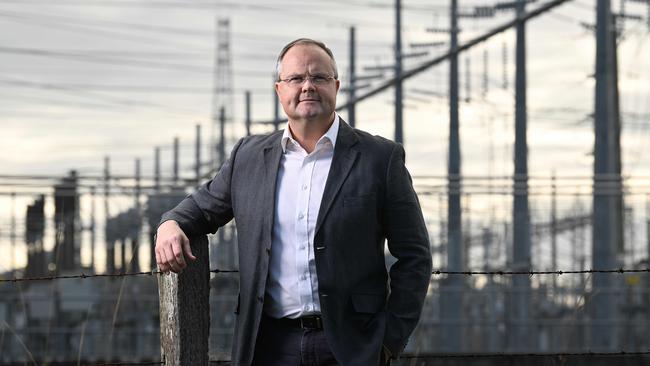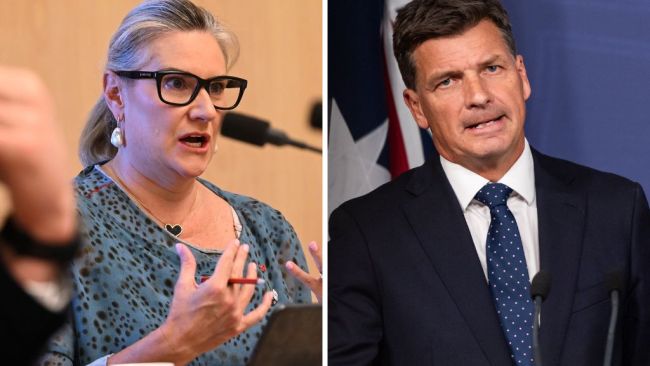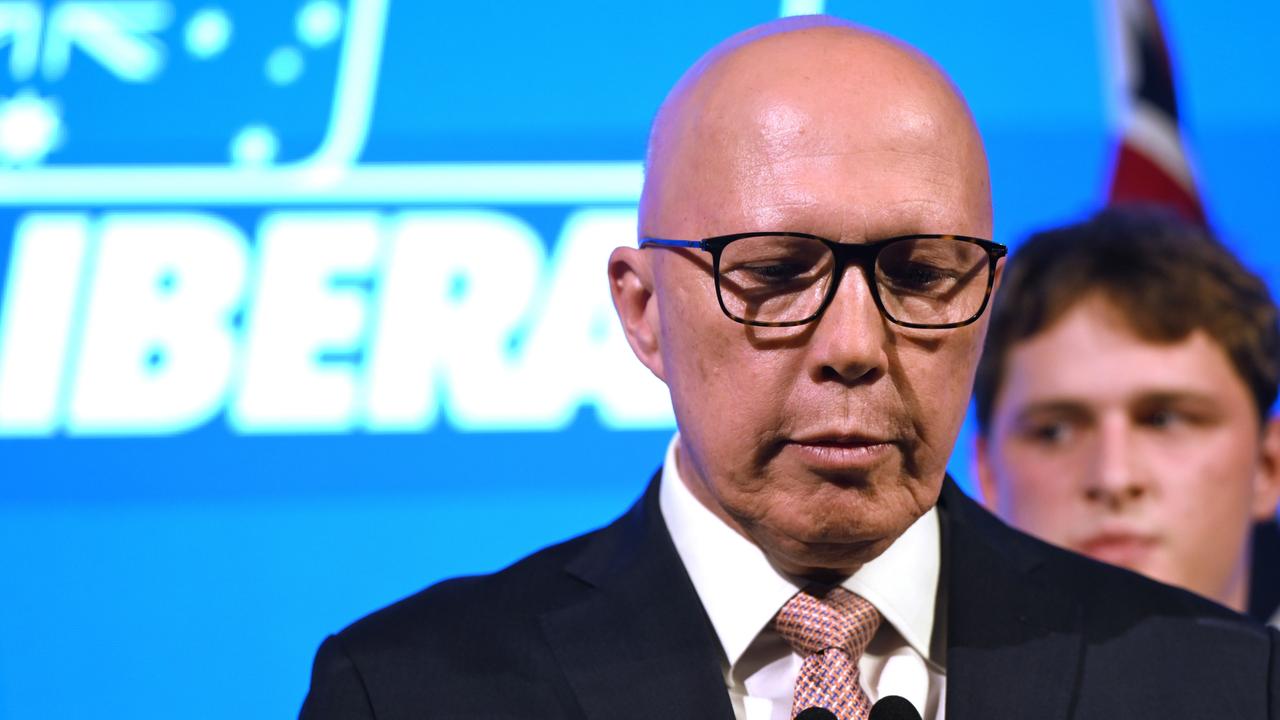Coalition set to go nuclear on energy
A ‘coal-to-nuclear transition’ and tapping world-leading uranium stocks is firming as a centrepiece of the Coalition’s 2025 energy policy to secure the grid, cut emissions and lower power bills.

A “coal-to-nuclear transition” in the regions and tapping Australia’s world-leading uranium stocks are firming as centrepieces of the Coalition’s 2025 energy policy to secure long-term baseload power, slash emissions and lower electricity bills.
Key election battlegrounds and coalmining regions in the NSW Hunter Valley and central and north Queensland, which are vulnerable to the rapid shift away from coal to renewables, are expected to be leading candidates for the future development of small modular reactors.
Opposition energy and climate change spokesman Ted O’Brien told The Australian that “views of local communities would be front and centre” if the Coalition rubber-stamps a coal-to-nuclear transition.
“A social licence should be a prerequisite for any major infrastructure that impacts people’s way of life. It’s one of the reasons why we’re speaking so openly about these matters now, even before we’ve settled a policy,” Mr O’Brien told The Australian.
“The Coalition is learning lessons from Labor’s misjudged attempts to steamroll over regional communities in their rush to roll out renewables and transmission lines.”
Peter Dutton has put nuclear energy and gas at the heart of the Coalition’s future energy blueprint, which will be finalised before the next federal election.
The Australian can reveal Scott Morrison came close to backing nuclear energy ahead of the 2022 election after conducting extensive research during deliberations on the Coalition’s 2050 net-zero emissions policy.
Coalition sources said Mr Morrison, who believed SMRs would play a role in the future energy mix, dropped the idea over fears of an electoral backlash and Anthony Albanese weaponising nuclear as a central campaign issue.
Despite the majority backing of Coalition MPs in 2021, some inside the Liberal Party were concerned about the economics and polling showing voters remained sceptical about nuclear energy.
The Prime Minister and Climate Change and Energy Minister Chris Bowen – who have committed to slashing emissions by 43 per cent and having 82 per cent of renewable electricity in the grid by 2030 – claim nuclear is not a viable option because it is too expensive.
Amid soaring energy bills and fears over grid instability, the Coalition is pointing to post-election polling showing public sentiment on the benefits of nuclear energy has shifted.
Following a recent visit to the US coal state of Wyoming, where locals are backing an SMR project funded by billionaire Bill Gates, Mr O’Brien said “Australians with high energy-IQ know intuitively swapping retired coal plants for nuclear makes sense because they are like-for-like replacements”.
Writing in The Australian, the Queensland MP states: “Like in Wyoming, Australians in towns with power plants and energy-intensive industries aren’t fooled by NIMBY scare tactics of city-based politicians.
“Nuclear plants can plug into the grid, leveraging existing transmission, transportation and water infrastructure left behind by retired coal plants.”
Quoting a US Department of Energy report, Mr O’Brien writes that using the infrastructure of an existing coal plant can “reduce a nuclear plant’s capital costs by up to 35 per cent”.
“Replacing just one of Australia’s 50 coal generators with nuclear power would remove about 1.6 million tonnes of CO2 annually, equivalent to the emissions created by nearly 900,000 cars running on petrol,” he writes.
“Nuclear would also avoid the environmental damage of thousands of kilometres of transmissions lines connecting new wind and solar projects.
“Nuclear plants deliver more jobs and better-paying ones as they can produce more electricity, rely on more value-added supply chains and higher-educated workers. In replacing coal for nuclear, most plant workers can live in the same town and stay in the same occupation, albeit work in a cleaner and safer workplace.”
Mr O’Brien, who points to coal-to-nuclear transitions in Poland and Wyoming, said Australia had “enormous uranium reserves – the largest in the world – but we have never used nuclear energy to generate electricity”.
A Minerals Council of Australia poll in May found that 45 per cent of voters either strongly or somewhat supported nuclear power as a domestic energy source, with 23 per cent opposed.
The survey of 2600 voters, which was run by research group Insightfully, found that 51 per cent of respondents supported removing bans on nuclear energy, with 19 per cent opposed and 30 per cent neutral. Mining giant BHP is pushing the Albanese government to remove “prohibitions” on nuclear energy to help achieve 2030 and 2050 climate targets, amid fears that restricting power sources in the grid will hold back the clean energy transition.
Mr O’Brien said “Labor’s policies are driving a premature closure of coal plants, with 80 per cent of baseload power set to exit the grid by 2035”.







To join the conversation, please log in. Don't have an account? Register
Join the conversation, you are commenting as Logout